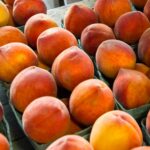Australian produce needs 'scientific certainty' from CSG mining
Australia's horticultural industry could be under threat from coal seam gas (CSG) mining if aquifers are damaged in the process, according to Queensland industry body Growcom. 
Growcom CEO Alex Livingstone told www.freshfruitportal.com there was still too much uncertainty for growers as to whether the process of hydraulic fracturing - or fracking - could hurt their industry for the long term.
"I think that in general agriculture and mining can co-exist and get along all right, but the risks of coal seam gas are very substantial around aquifers," he says.
"We’ve got the great artesian basin that sits under the middle of Australia and there are a lot of aquifers that either feed it or tap off it, but if that aquifer system gets damaged it’s going to take many years to recover.
"People are talking about 1000 years and I think 1000 years might be on the optimistic side. How long does it take an aquifer system to repair itself, if ever?
"If you're drilling through coal seams and going through aquifers, and there’s mixing, what happens to the chemicals? What happens to the nasties? What happens to the salts?"
Livingstone highlights that farmers across Australia have had very strict rules in managing water supply from the Murray-Darling Basin, yet the mining industry is allowed to use large amounts of water that aren't recorded using the same methods.
"They pump an enormous amount of water out of the ground to reduce the pressure and let the gas come out of the coal and up it comes.
"It's very difficult to understand how we can do that, and then look at something like the Murray-Darling and say we’ve got to cut all the irrigation licenses because we need more water flow for the river and everything, when the mining industry is taking huge amounts of water out of the ground because of coal seam gas - what's the balance?
"If you have this potential destruction of the aquifers, you have this water that goes missing out of the Murray-Darling Basin but isn’t actually counted as water taken out, you’re creating a problem, a very long term problem, for a potentially very short term gain."
He points out that while a large portion of the CSG industry is in the state of Queensland, it would have wide-reaching consequences if there were any water-related or environmental problems.
"We still have to be aware that it’s come out of the overall system, so if the Queensland system west of Emerald starts ripping out water for mining, and uses that water productively, what happens downstream? We’ve already seen what happened to Adelaide and the Riverland during the last big dry.
"We would be better off to spend a couple of extra years getting the science right, knowing what we’re actually doing to our underground environment, to our rivers, and then once we know with scientific certainty we can go ahead.
Effects of chemicals
Livingstone says Australia's fruit and vegetable industry has taken significant efforts to ensure a clean and green image with reduction in pesticide and herbicide use, but a CSG accident with dangerous chemicals has the potential to upset all that hard work.
"In that case the Food Safety regime is going to take over and say no you can’t send this stuff to market, and where does that leave the producer, who may have invested millions in a block of dirt, the irrigation licenses and all that sort of thing, who now finds his underground water is tainted and can’t get his product to market?
"I’m not saying that is happening on a broad scale but we do have a number of examples in Queensland where they’ve tested the water after the coal seam gas people have been around and there are chemicals in it that shouldn't be there."
Photo: Eco News










































